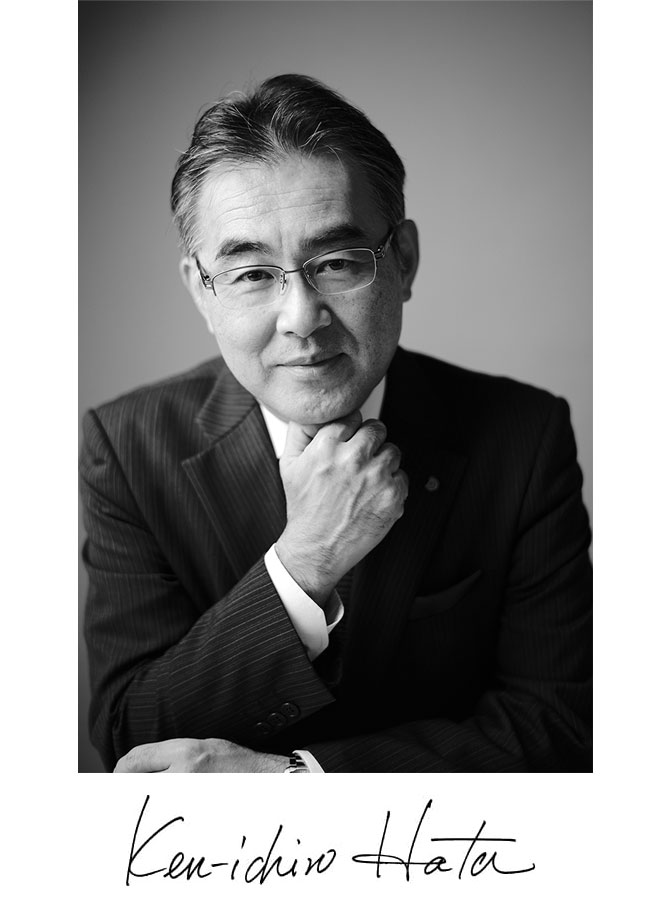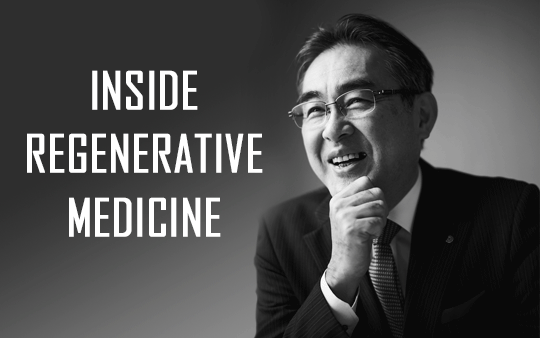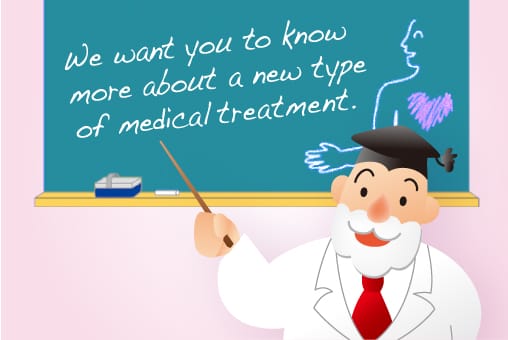Nov. 22, 2021[INSIDE REGENERATIVE MEDICINE]
Are you interested in regenerative medicine?

When we are ill, we take medicine. Or we may get an injection (which I myself hate). In certain cases, we may even need an operation. But what about diseases that cannot be cured with present-day medicine? Many types of cancer can be now expected to be cured, but what if there is rapid progression, or delayed discovery and metastasis? Then the cancer will not easily be cured. Lifestyle diseases such as metabolic syndrome also tend to be intractable. If they are not managed properly, they just keep getting worse. In this sense, age-related changes are like intractable diseases. In general, diseases that slowly worsen over time — the so-called chronic diseases — are difficult to manage with the present treatment options.
Damage from physical trauma can also be challenging; for instance, if the spinal cord has been injured in a traffic accidence or someone has lost a lot of skin to major burns. Moreover, although the direct cause is often a chronic disease, lifestyle diseases can also contribute to the failure of organs like the liver and kidneys. One option is to receive an organ transplant from another person, but this will mean taking immunosuppressant drugs long-term. We cannot say unequivocally that that is a cure. Furthermore, many children who are born with serious diseases cannot be helped by medicine as we know it. They are awaiting the development of new treatment methods. What can we do for these patients?
We would like to use the technology called “regenerative medicine” to expand the range of what is possible. Saisei, the Japanese word for “regenerative”, is a word that gives the positive impression of some kind of new rebirth. I would like to take this opportunity to explore some questions with you all: What is regenerative medicine, and what is its present state? What kinds of patients can be treated with regenerative medicine? What kinds of issues do we encounter when trying to promote regenerative medicine? And how can the field of medicine be expected to develop in the future?
Regenerative medicine is knocking on the door to the medicine of the future. I hope to be able to engage you all in dialog about regenerative medicine in various settings. Have I now piqued your interest in regenerative medicine?
November 22, 2021




